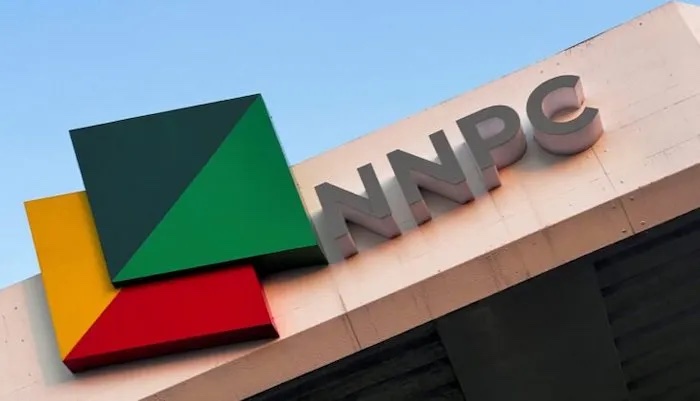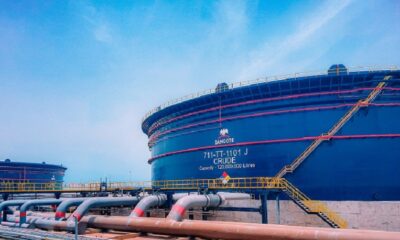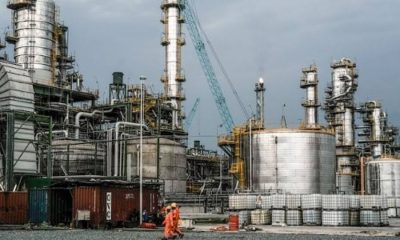Business
CSOs Urge Further Reduction Of Pump Prices Of Petrol
Following the marginal reduction of the pump prices of premium motor spirit (PMS) by the Dangote Petroleum Refinery and the Nigerian National Petrol Company Limited (NNPC Ltd), civil society groups have reacted by calling for further downward review.
Recall that the Dangote Petroleum Refinery had announced a partnership with MRS Oil and Gas to offer petrol at N935 per litre at retail outlets, while it reviewed the ex-depot price from N970 to N899.50 per litre.
The move, saw state oil major, the Nigeria National Petroleum Company peg its retail prices at N965/litre.
ALSO READ: Dangote Partnership: MRS Urges Nigerians To Insist On N935/Litre Petrol Price Nationwide
However, the civil society groups are of the opinion that the price reduction, fall short of expectations.
According to the Chairman, Centre for Accountability and Open Leadership, Debo Adeniran, the reduced price of N935/litre was still expensive and unsatisfactory.
He pointed out that petrol was just one of the products coming out of crude and that both government and private business could still give out free petrol to citizens while making huge profits from the other products.
In his words, “Well, we believe that if NNPC and the private sector actually give out PMS for free, they will still not run their business at a loss, because the other derivatives of petroleum products can still serve them, and can still make them to break even. So, even at that N900 and something, it’s still expensive.
“Dangote has kind of mooted the idea that it could drop to as low as N650. And if he has mulled this, then it means that it is the state, it is the NNPC that will have been the clog in the wheel of such progress. And you know also that we expected that fuel prices, especially PMS prices, will drop below N200 when Dangote was expected to come on stream.
“So, it’s unfortunate that we are still talking about over N900 and they want us to jump up and rejoice for that. That is not satisfactory. They should just let us see the breakdown of their production cost and why it’s still there. I mean, there are countries like Libya under Gaddafi that gave out PMS for free and they didn’t run anything at any loss. So, I believe that it can still go further down.”
On his part, the Executive Director of the Civil Society Legislative Advocacy Centre, Ibrahim Rafsanjani, commended the reduction of fuel prices by the NNPC and Dangote, but said the government could still reduce the price.
“Dangote’s own is about N899 or something like that. Well first and foremost, we are happy that there is a little reduction in the prices. But also based on analysis and based on facts and evidences, we believe that it is possible for the Nigerian government to further reduce the prices.
“Because if a private company can reduce the price and it still makes profit, we wonder why government-owned enterprises cannot really pity its citizens,” he said.
Business
Marketers In Anguish, As Dangote, NNPC Ltd War Drag Price To N880/litre

The pull of market forces which moved the hands of the Nigerian National Petroleum Company Limited (NNPC Ltd) to reduce the price of Premium Motor Spirit (petrol) to N880 per litre in Lagos and N935 in Abuja appears to be a source of torture to independent markets.
Biztellers reports that the latest price review on Easter Monday saw NNPC retail outlets in Lagos drop from N925 to N880, while those in Abuja adjusted from N950 to N935.
The NNPC Ltd’s price reduction came barely a week after the Dangote Refinery lowered its ex-depot price from N865 to N835 per litre.
ALSO READ: BREAKING: Again, Dangote Cuts Petrol Price To N835 per Litre
In addition, the $20bn refinery also directed its partners like MRS, Heyden, and Ardova to sell a litre of petrol at the rate of N890 instead of N920 in Lagos, N900 in the South West, N910 in the South-South, and N920 in the North East.
Consumers can smile because with the reaction, the NNPC Ltd’s new price in Lagos is N10 lower than what the Dangote Refinery is selling at, which might lead to another reaction, as the price war between the two companies.
Though some NNPC Ltd’s retail outlets were observed selling at the old rate in Lagos, it was gathered that they were given the liberty to exhaust old stock before adjusting to the new prices.
Market sources are of the view that the current price war was ignited by the Federal Government’s implementation of the Naira-for-crude policy.
Business
Gold Prices Hit Historic $3,500 Amid Trump Tariffs, Fed Tensions
Gold soared to a record high of $3,500 an ounce on Tuesday, as mounting fears over a potential U.S. recession and escalating tensions between President Donald Trump and the Federal Reserve drove investors toward the traditional safe-haven asset.
The precious metal briefly touched an all-time high of $3,500.10 an ounce before retreating slightly to trade at $3,467.87.
READ ALSO: JUST IN: Vatican Discloses Cause Of Pope Francis’ Death
The rally marks the latest in a string of record-breaking gains for gold, fueled by a weakening U.S. dollar, sharp declines across global stock markets, and growing concerns over the health of the world economy.
Market sentiment took another hit this week after President Trump ramped up his trade war with China, slapping fresh tariffs on the world’s second-largest economy and intensifying fears of prolonged economic disruption.
Gold has surged more than 30 percent since the start of the year as investors seek refuge from mounting market volatility.
“The rally reflects ongoing recession fears in the U.S. economy and heightened political tensions, especially as President Donald Trump continues to attack Federal Reserve Chair Jerome Powell,” said Rania Gule, senior market analyst at trading group XS.com.
Concerns about the Fed’s independence were further stoked Monday, when Trump publicly lashed out at Powell on social media, branding him a “major loser” for not cutting interest rates — a move the president has repeatedly demanded.
The sharp criticism follows Trump’s recent suggestion that he might attempt to remove Powell from his post.
Business
World Economic Forum Founder Klaus Schwab Steps Down From Board
Klaus Schwab, the founder of the World Economic Forum (WEF), announced his resignation from the board on Monday, marking a significant moment in the organization’s history.
Schwab, who has been at the helm of the WEF for over five decades, confirmed he was stepping down from his position as Chair and leaving the Board of Trustees with immediate effect.
“I have decided to step down from the position of Chair and as a member of the Board of Trustees, with immediate effect,” Schwab said, noting that the decision comes as he approaches his 88th year.
READ MORE: NNPC Ltd Opens Retail Outlet In Bauchi
His resignation follows his stepping down as executive chairman in 2024, when former Norwegian foreign minister Borge Brende took over the day-to-day operations.
In response, WEF appointed Vice Chairman Peter Brabeck-Letmathe as interim chairman while a search committee was formed to find a permanent successor.
The WEF board lauded Schwab’s immense contributions, acknowledging his “outstanding achievements” over his 55-year leadership tenure.
“At a time when the world is undergoing rapid transformation, the need for inclusive dialogue to navigate complexity and shape the future has never been more critical,” the WEF stated.
“Building on its trusted role, the Forum will continue to bring together leaders from all sectors and regions to exchange insights and foster collaboration.”
Schwab, originally from Ravensburg, Germany, founded the precursor to the WEF, the European Management Forum, in 1971.
The first meeting drew fewer than 500 participants, but over the years, Schwab expanded the gathering into a prestigious platform that now attracts thousands of influential figures.
The Davos summit has become synonymous with global power brokers, offering opportunities for high-level networking, discussion, and collaboration on issues affecting the world.
Under Schwab’s leadership, the WEF grew to include regional meetings and established centers dedicated to pressing global topics such as cybersecurity, climate change, and financial systems.
The organization continues to uphold its mission of “improving the state of the world” by fostering dialogue and cooperation.
However, the WEF and Schwab have not been without their critics. Many argue that the forum has become a venue for corporate elites to exert influence over governments, with the term “Davos Man” often used to describe the affluent attendees.
Schwab has also faced the ire of conspiracy theorists, particularly following his promotion of the “Great Reset” following the COVID-19 pandemic.
These theorists have spread misinformation, alleging that Schwab and the WEF are part of a global elite aiming to control the world, with even Elon Musk weighing in on social media, claiming Schwab “wants to be emperor of Earth.”






















